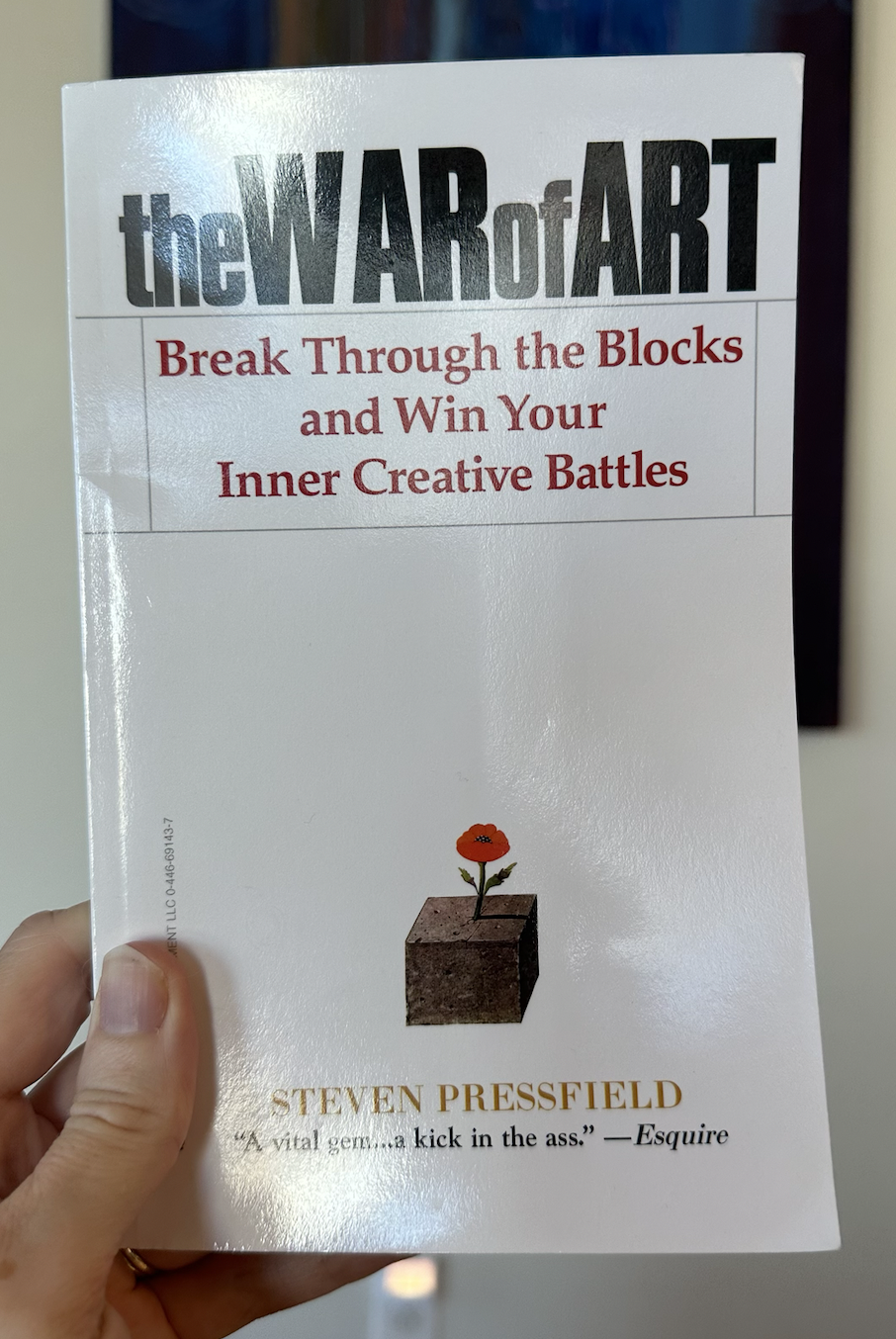I like this book’s ideas about Resistance and about overcoming Resistance. Resistance, in Pressfield’s world, is a deeply antagonizing force like gravity - it is anything that keeps us from doing what we want to do and what we were meant to do.
I first encountered the idea of Resistance in a Seth Godin book, I now see the idea is at least a bit older than the Godin book that I read. It’s a solid concept about a diffuse entity. I find it useful to identify and even personify the kinds of procrastination that keep artists from working.
Aspects of Pressfield’s beliefs towards discipline that are critical towards certain foods and also sex are a little harsh, as we all need both to keep living and to live day-by-day. I’m all for discipline in most cases but I’m going to keep eating food the way that I usually do, and I think even if you held a gun to my head, I’m not going to percieve my sex life as a distraction from my art.
The book was published in 2002 and doesn’t seem to have been re-editioned or footnoted, because Pressfield casts up an example of fortitude in Lance Armstrong’s accomplishment of winning the Tour de France after having cancer. There’s no mention of Armstrong’s doping admissions. It happens… but anyone reading this book in 2023 probably won’t see Armstrong as a paragon of resilience. I doubt Pressfield does either since he is against drug and alcohol use.
Maybe what is pure about this book is that Pressfield just wants to inspire us to get off our butts - he doesn’t get to the point of asking artists to resist the urge to break the rules in the way Lance Armstrong did. Resistance is so difficult to spy and defeat that it hid within one of Pressfield’s examples, in the form of doping.
That’s enough about Lance Armstrong I guess. With more importance, I appreciate Pressfield’s distinction of the Professional versus all others, where Professionals show up each day despite facing various challenges, where non-professionals seem to give up for any reason.
The page/chapter I felt I resonated with most was “How to be Miserable” which covers how Marines know to be miserable, and they keep moving on despite this, and how artists are similar. Being a person raised by a Marine veteran, this page rang true for me. Sometimes art is hell, and it’s funny how hellish it is. It’s fun to laugh at one’s own failure and keep moving on. I won’t quote the page directly, but if you do read or have read the book you’ll know what page I mean.
What I also like a lot in this book is the idea that art doesn’t come from the artist at all. I’ve never felt comfortable taking credit for most of my work, to the point where I hate signing my paintings. This book helps explain why this happens to me, and millions of other artists out there.
All in all, some parts of this book may make some people a bit mad, and it’s hard to agree with all of it. I do like the more secular and eternal principles here, and when a chapter had something I could relate to, like Marines or being a mother, it did stand out to me as true.
